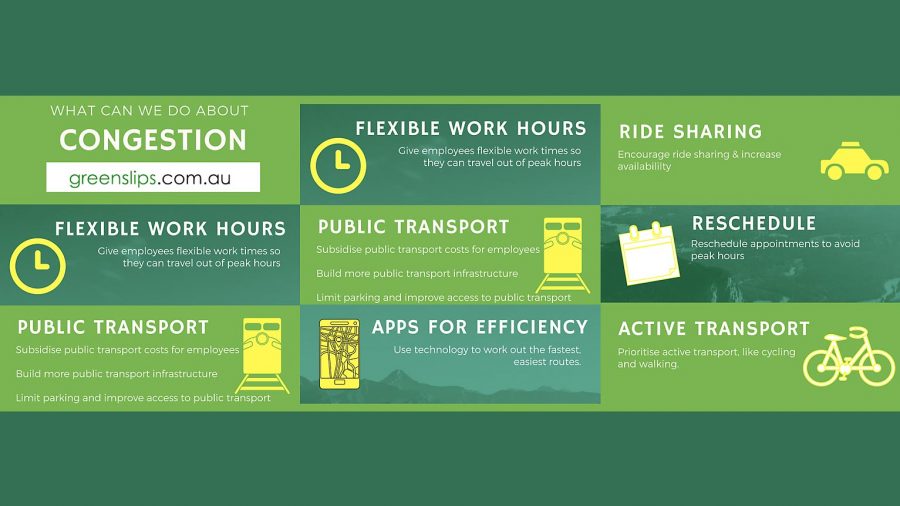Whether they call it “traffic”, “jams”, “gridlock” or “congestion”, drivers everywhere are tired of it. Authorities in cities all over the world are trying to find ways to reduce it. Some take a supply approach – build more roads – and others take a demand approach – try to change the way people travel around.
Did you know?
- Nine out of 10 Sydney businesses think congestion has worsened in the last year
- Hobart trips take 56% longer in morning peak hour than non-peak; only Sydney is slower (67%)
- Melbourne CBD commuters in the morning peak take 70% longer than they would at night
- About eight out of ten kilometres of travel in Sydney and Melbourne are by car.
The estimated price of congestion in 2015 was $16.3 billion and forecast to grow 5.5% each year until 2030. Congestion has all kinds of knock-on effects – less time with family, reduced capacity of business to hire more staff or invest, slower economic growth and general peak hour frustration.
Supply approach
The supply approach to congestion is to widen existing roads (M4) or build brand new ones. Increasing supply is the reason for WestConnex, NorthConnex, SouthConnex. The current touted cost of WestConnex is already $45.3 billion, yet there is no way to tell whether it will reduce congestion.
The famous phrase, “build it and they will come” applies to roads too. Building a new road encourages more drivers to drive on it. Increasing a road by 10% immediately increases average vehicle travel by 4%. Within a few years, vehicle travel is 10% higher and takes up the new road’s capacity. This is called “induced demand”.
Over time, it is repeatedly shown, new roads become as congested as old ones and drivers still pay expensive tolls to use them.
Manage demand
The supply approach appears to make only a temporary difference, but managing demand may be more long lasting. While both approaches change behaviour, demand management applies more broadly, for example:
- Give employees flexible work times so they can travel out of peak hours
- Subsidise public transport costs for employees
- Reschedule appointments to avoid peak hours
- Use technology to work out the fastest, easiest routes
- Limit parking and improve access to public transport
- Increase availability of ridesharing
- Prioritise active transport, like cycling and walking
- Build more public transport infrastructure, to match population growth.
Congestion arises when there is inadequate infrastructure for the size of the population. Yet experts often claim paying to use the road is a way to cut congestion. This idea is unpopular because it is already expensive to drive on toll roads.
If prices were increased further, say during peak hours, only the wealthy could afford to drive. Moreover, many of Sydney’s toll roads are still congested, even though people are paying to use them.
Congestion happens
One interesting point of view comes from Marion Terrill of the Grattan Institute, which has studied and compared congestion in each of Australia’s cities. Terrill says all cities want some congestion! She says:
“Congestion happens when a lot of people want to be in a certain place and it adds to the vibrancy of the city. If the city has a lot of empty roads, then they’ve built too many or nobody is going out working or enjoying their leisure time.”
Obviously there needs to be a balance between having a lively city and being stuck in your car for hours each day. It’s hard to enjoy leisure time if you spend it travelling home. Nobody wants to pay to drive a vehicle and then sit still in it.


your opinion matters: